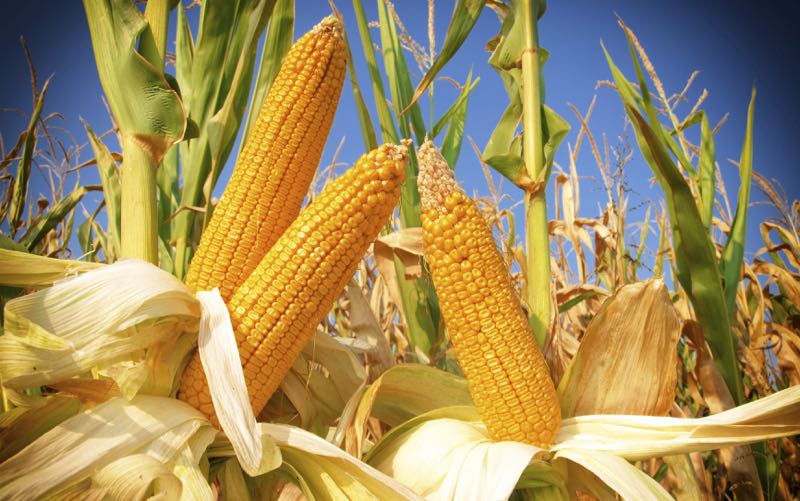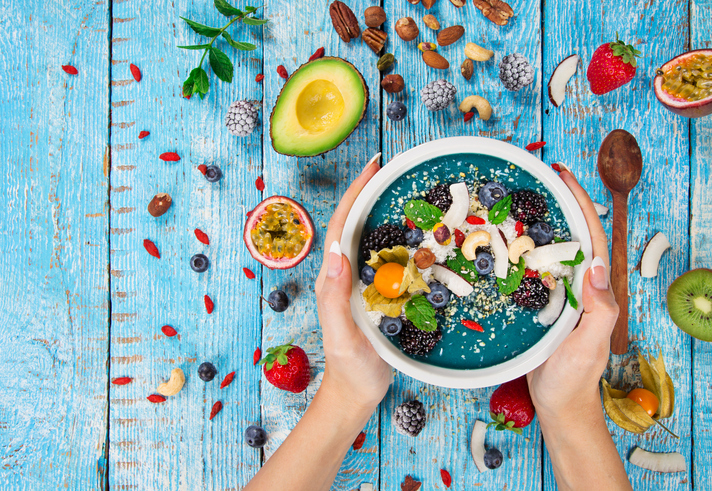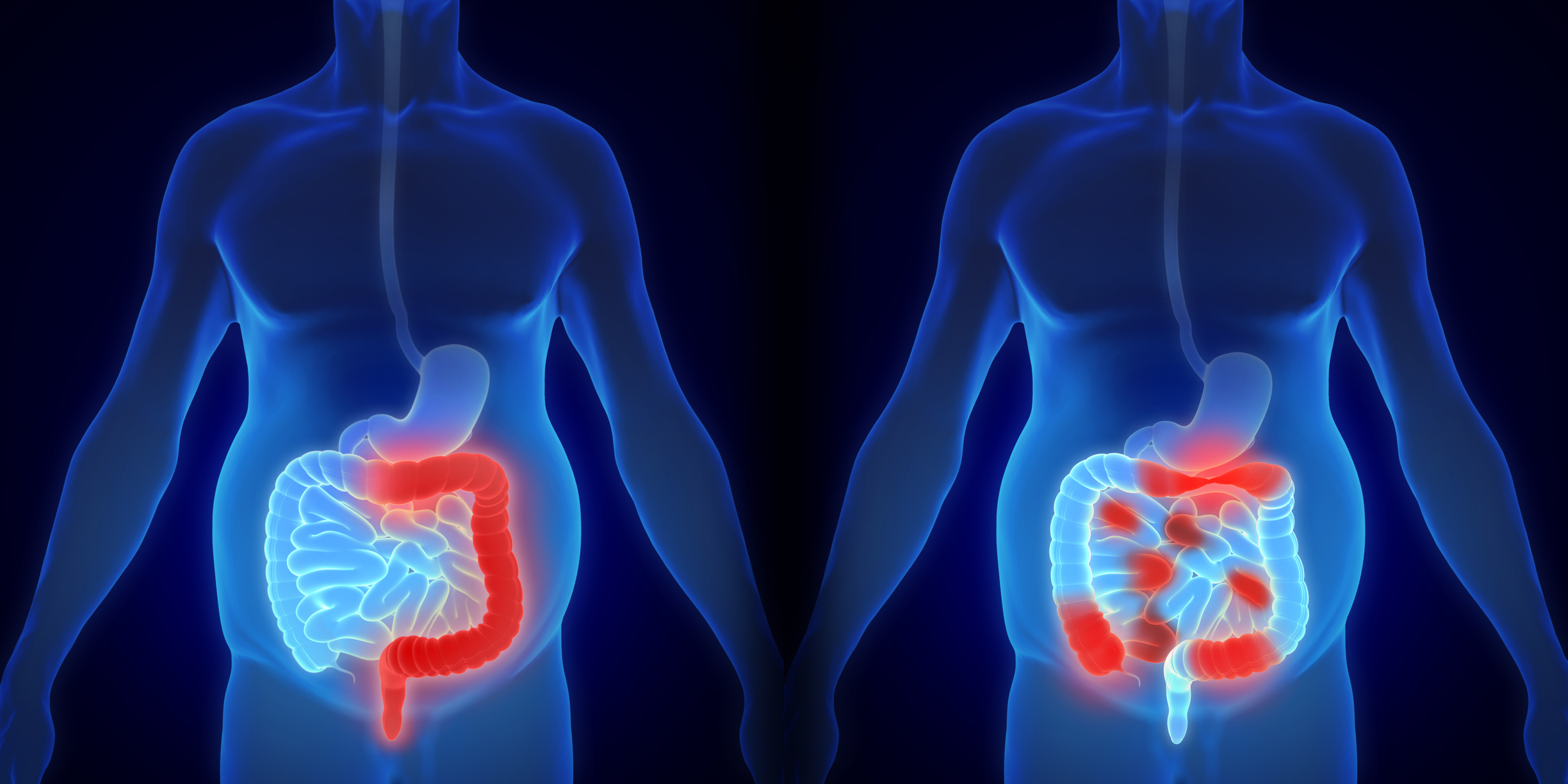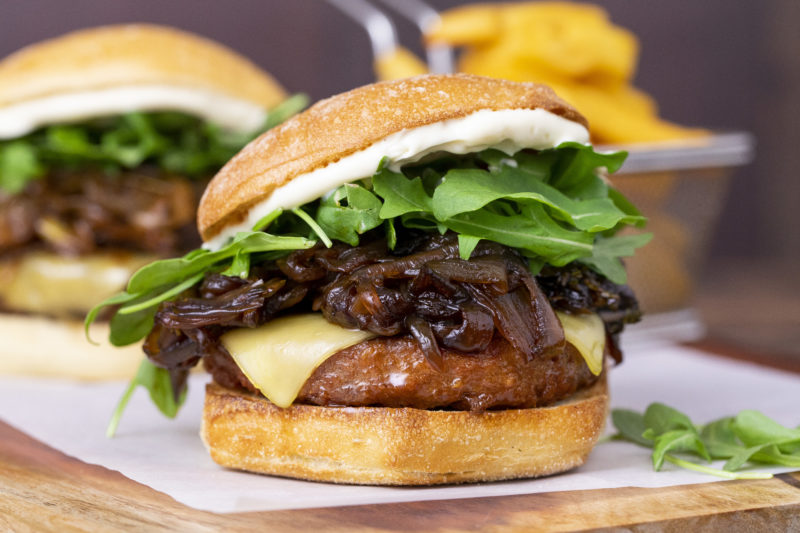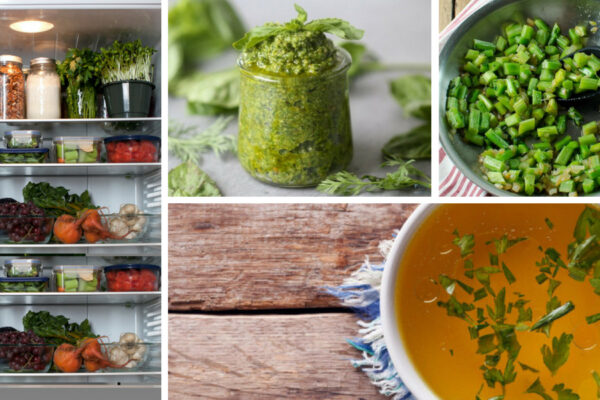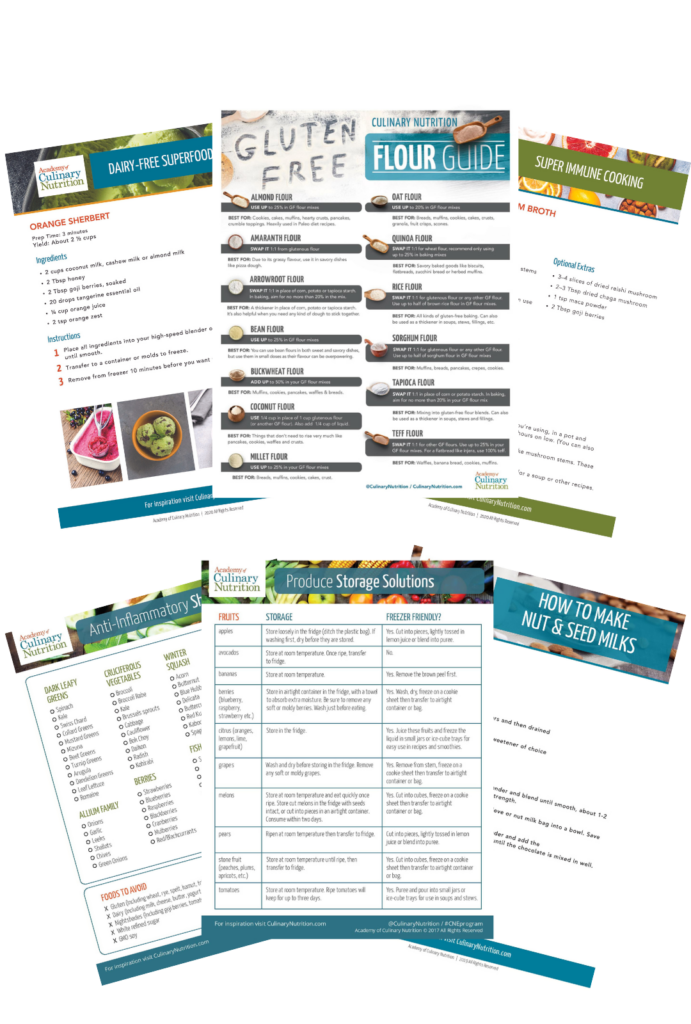Best Foods for Acid Reflux
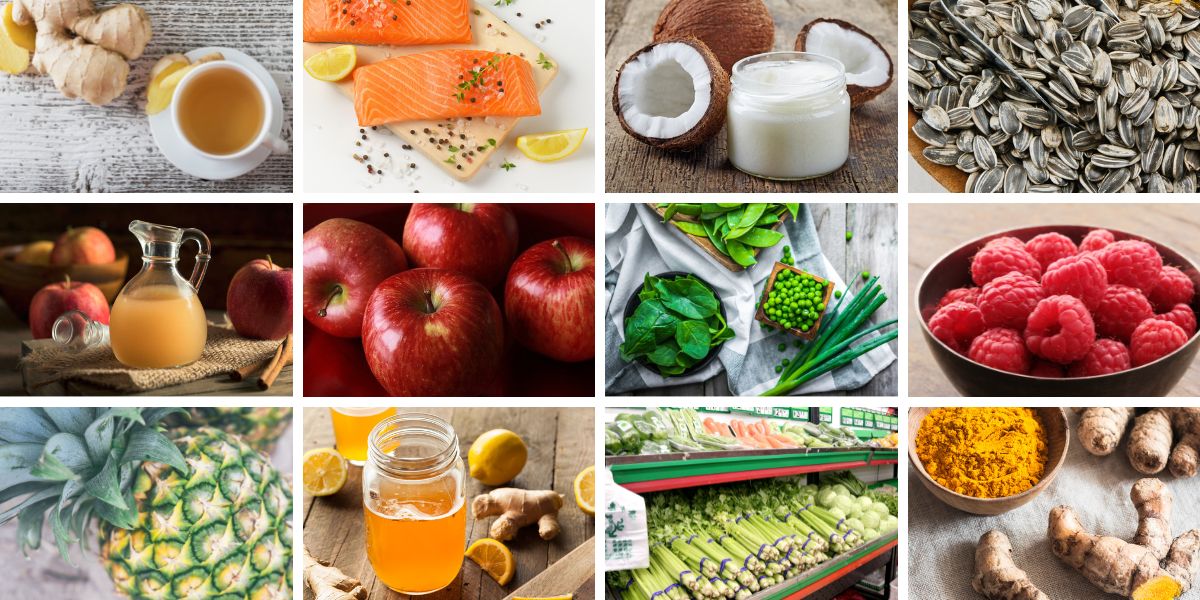
If you’ve ever experienced a burning sensation in your chest after you eat, you’re certainly not alone. Acid reflux, or gastroesophageal reflux disease (GERD), is a worldwide problem. In North America alone, anywhere from 18.1 – 27.8% of the population experiences acid reflux every week. That’s nearly a third of us who have this constant, chronic problem. The good news is that there are plenty of foods that can help with acid reflux and today, we want to share some of the best foods for acid reflux!
What is Acid Reflux?
Our stomachs begin to churn our food and secrete enzymes that break down proteins. The stomach is very acidic because it needs to be to do its job. When we have acid reflux, some of the contents in our stomachs splash up into the esophagus. Since the esophagus is more delicate tissue and doesn’t have the strong lining our stomachs do, we experience pain and discomfort.
Many people commonly think that acid reflux is caused by too much stomach acid. Often, it’s the opposite. Our digestive process is a cascade, beginning in the mouth (sometimes before food even reaches our mouths!) and ending with pooping. Between the stomach and the esophagus, there is a sphincter that opens when the stomach is ready (meaning it’s acidic enough) to receive food. When there isn’t enough stomach acid, that sphincter may become weak, allowing food to splash up.
Also, undigested food fermenting in the stomach may cause bloating and gas, which puts pressure on the sphincter so we can burp – another opportunity for stomach acid to ‘burn’ the esophagus.
Foods to Avoid with Acid Reflux
The following foods trigger or worsen acid reflux, weakening the lower esophageal sphincter:
- Fried food and unhealthy fats
- Citrus fruits
- Tomatoes
- Chocolate
- Refined sugar
- Spicy food
- Caffeine
- Dairy products (interested in learning how to eliminate dairy? Here are five tricks to help you)
- Peppermint and spearmint
- Carbonated drinks, like soda
- Gluten (research indicates that a gluten-free diet can help resolve acid reflux symptoms)
Best Foods for Acid Reflux
There are a wide range of foods you can eat to soothe the gut and boost your proper production of stomach acid. These include:
Ginger
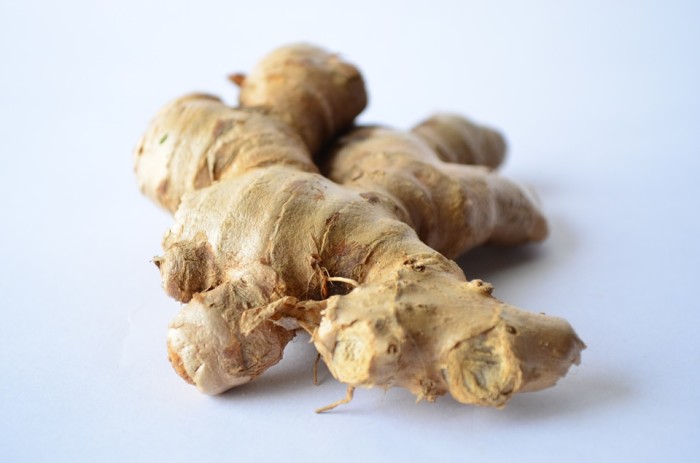
Ginger is highly anti-inflammatory and immune-supportive, which is great for gut healing. It also prevents the growth of Helicobacter pylori, a bacteria that can cause stomach ulcers and dampen stomach acid production. Use it fresh in your foods or steep it as a tea.
Full Code:
Get your FREE 1-Day Digestion Meal Plan plus 35 more free resource guides!
Fill out the form below for instant access.
Free Resource Library
Enjoy more than 40 downloadable guides, recipes, and resources.
Wild Salmon
Wild salmon is rich in astaxanthin, an antioxidant that has been shown to reduce acid reflux symptoms in patients with indigestion or h. pylori. Fish such as salmon is extremely popular in the Mediterranean diet, a dietary style that may reduce the risk of acid reflux according to this study.
Turmeric
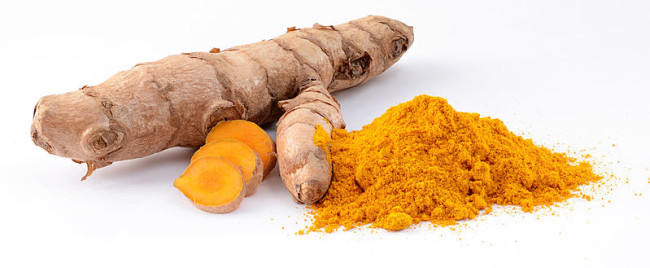
The active component in turmeric, called curcumin, helps to heal esophageal cells and reduces inflammation in the esophagus. And it’s one of the many nutritious herbs and spices you can add to your pantry.
Pineapple
Bromelain, a compound found in pineapple, helps us to better digest proteins, which can help reduce indigestion. It’s also great for dampening inflammation and pain. Grab a fantastic tropical smoothie recipe for your next breakfast or snack!
Sunflower Seeds
These mighty seeds are high in Vitamin E, an antioxidant that can help reduce the severity of acid reflux and soothe mucosal damage in the esophagus. Enjoy them in trail mix, on salads or porridge, or make your own sunflower seed butter.
Apples

Everyday apples are chock-full of quercetin, a flavonoid that can help reduce acid reflux symptoms.
Celery
Celery is an anti-inflammatory and antioxidant-rich vegetable that may help protect the stomach lining and lower the risk of stomach ulcers.
Raspberries
These lovely berries are an amazing source of ellagic acid, which may help prevent stress-induced gastric ulcers.
Spinach
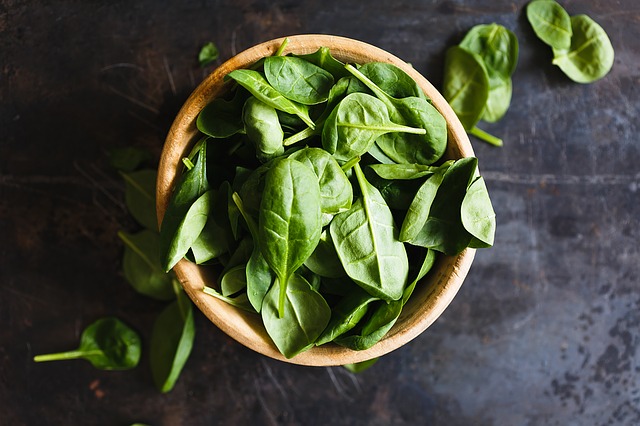
This delicious dark leafy green has natural antacid properties and is also an amazing source of B vitamins, which contribute to the enzymes that aid with digestion.
Kombucha or Sauerkraut
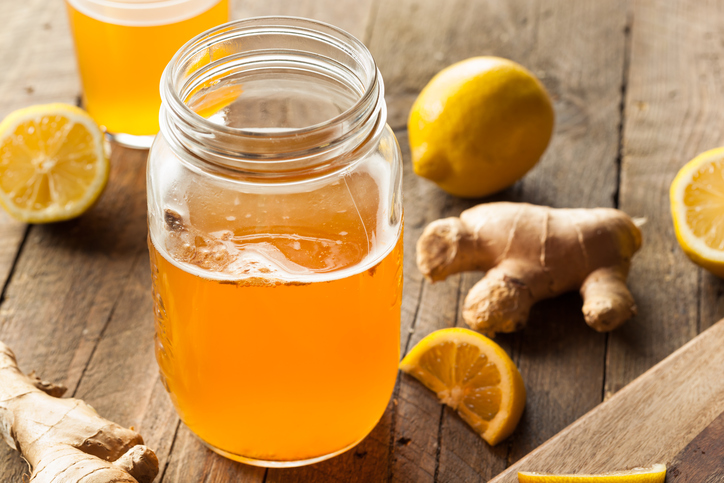
Fermented foods like kombucha or sauerkraut contain beneficial probiotics that nourish the digestive tract and the gut microbiome. Evidence indicates that probiotics can help protect the stomach lining and prevent regurgitation. Learn how to make your own kombucha at home – it’s very easy to do!
Coconut Oil
This beneficial fat is anti-microbial and antibacterial – this can help prevent infections in the digestive tract. It’s also very soothing to the gut and can help nourish the nervous system.
Apple Cider Vinegar
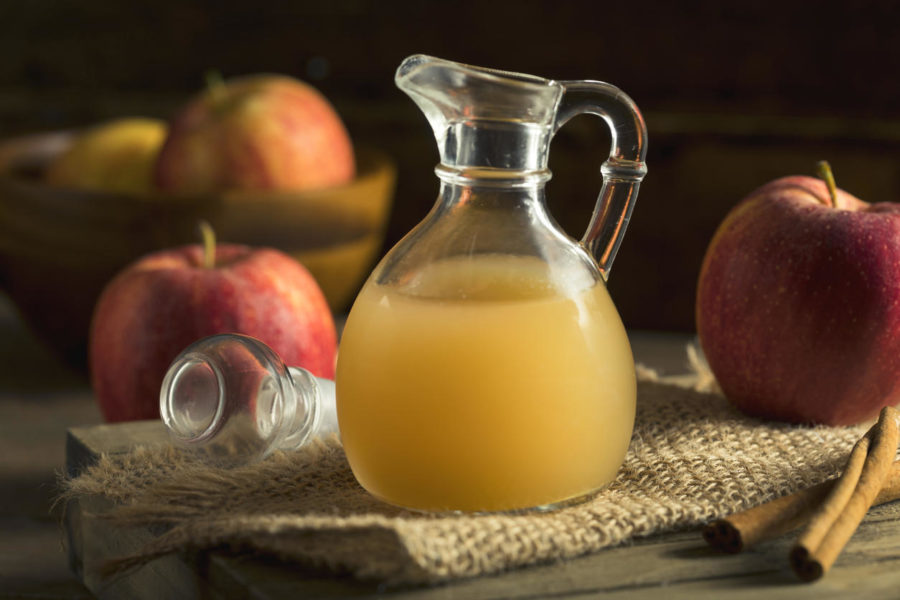
This can help you naturally boost your production of stomach acid. Apple cider vinegar is more of a ‘home remedy’ for indigestion. There is limited scientific evidence about its benefits for acid reflux (though there is some research that shows it can help with symptom relief when combined with deglycyrrhizinated licorice). If you have moderate to severe reflux, this could be a remedy you choose to skip.
Start off with 1 teaspoon diluted with a half cup of water before meals and adjust the vinegar or water if needed. And if that doesn’t work, there are 19 other ways you can use it!
More Diet and lifestyle Tips to Help With Acid Reflux
Other tips that might help improve acid reflux symptoms include:
- Eating several smaller meals a day rather than 1-2 large meals
- Not eating close to bedtime so your body has time to digest before lying down.
- Plain old water can also help with acid reflux symptoms – one study revealed that drinking a glass of water works more quickly and effectively than acid-blocking drugs.
- Ensure that you chew your food well – remember your digestive tract doesn’t have teeth.
- Evidence indicates that low carbohydrate ad low glycemic diets can aid with heartburn.
- Foods that contain fibre help you stay full for longer, which may reduce overeating and subsequent reflux symptoms.
By incorporating some of these foods for acid reflux, we hope that you are able to experience some relief and deliciousness at the same time!
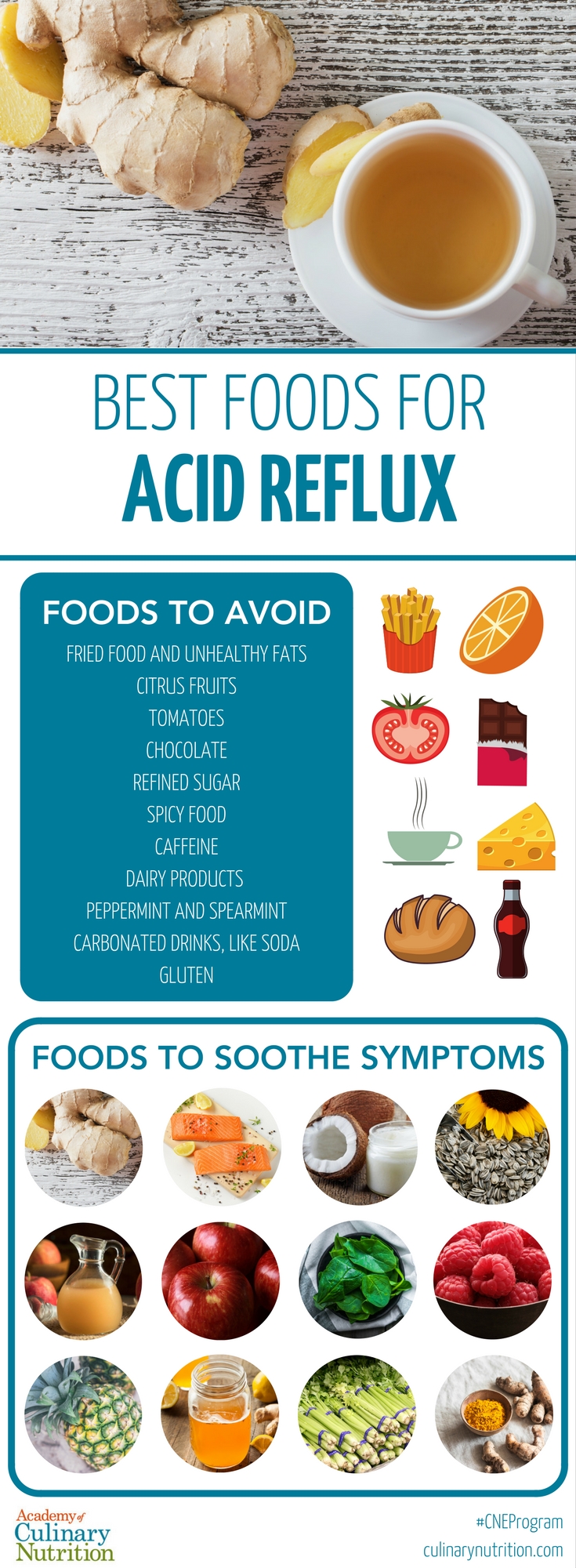
Free Resource Library
Enjoy more than 40 downloadable guides, recipes, and resources.

















